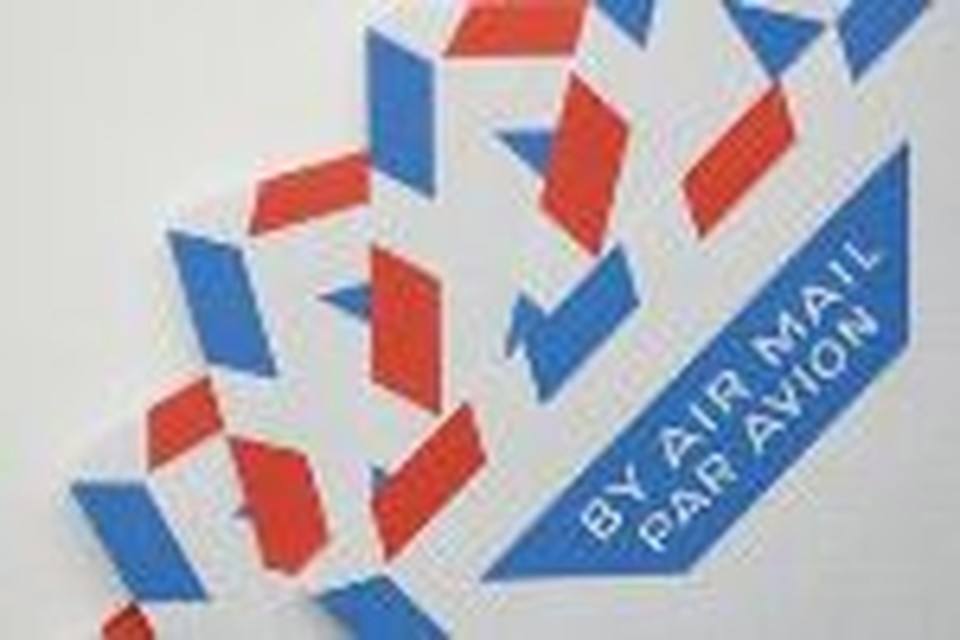Mail Call: A Veteran's Gift to His Daughter

I once teased my dad about being a pack rat. Now I thank God he was.
Years ago, as the rain drizzled outside, I stood in my parents' empty garage, thinking how crammed it had been a few days before. Had I overlooked anything? About to lock the door, I spotted a bit of cardboard jutting out from high in the rafters—more evidence of Dad's lifelong habit of hoarding.
Before tossing out the small battered box of papers, I glanced inside and saw an address: PFC Newt Hansen, APO New York. Inside the box were dozens of letters, all dated during World War II. Before long I was swept into a trip down memory lane that changed my life.
My parents met in 1943 at a USO in Massachusetts. Dad was on his way overseas. When he came back, they married. That much I knew, but little more. I was vaguely aware he saw combat, but I never heard a war story in our house. I was born in 1948, and what occurred before then had little meaning to me. My parents reared me in a safe and comfortable environment. I never knew hardship or fear of my future. Veteran's Day was just another day out of school.
In the mad haste to chase my own destiny, curiosity about my parents' pasts never piqued. Then suddenly I lost them both. My heart burned with regret. Why hadn't they tried to tell me? Why didn't I ask? There was no one left to fill in the blanks.
Then I happened on the old box perched in the rafters and brimming with mail from the home front during a war familiar to me only in classic movies of the 1940s. As I sat with the notes and letters strewed all over the carpet, I felt my parents close, smiling at my find—a little box, stashed and forgotten, now a daughter's prize.
Nothing can describe the way I felt reading about America during a time of uncertainty, one that united the country in a common cause. My grandma wrote my dad frequently, "I know mail call is the highlight of your day. Have you gotten the last goodie box yet?" Grandpa reported on the Victory Garden and my aunt that she’d married her Navy flier, ending her letter with a quote from a popular new song, "When the Lights Go On Again All Over the World."
The letters from Alice tickled me the most. She was a young woman working at a defense plant by day and serving as a USO junior hostess at night. She called my dad "Boots."
I was surprised that Dad was with the 121st Engineers, attached to the 29th Infantry that landed on Omaha Beach on D-Day. This 5-foot-4-inch jovial little guy from California survived the assault and fought his way through France and into Germany. How did that slip by me?
I turned sleuth, determined to connect with Dad's wartime experience. What did he do as an engineer? Where did the unit go after D-Day? What was it like to defend your country on foreign soil? I had no idea where to start. I thought surely the Army would have records, but I discovered Dad's records burned in a federal building fire decades ago.
I bumbled through the Internet, somehow hitting on the 29th Infantry Division Association National Headquarters. They furnished me with a printout of the 121st Battalion survivors. Elated, I furiously wrote to all of them and included a picture of Dad. Could they recall him and tell me about the years they shared?
The division commander responded immediately and sent me a book, Breaching Fortress Europe, the Story of U.S. Engineers in Normandy on D-Day. Now I had an eyewitness view of the challenges of the engineers as they hit the "Atlantic Wall."
Letters poured in as veterans responded graciously to my request, some in handwriting hardly legible, but my letter had touched them. One veteran proudly boasted that he got his first computer for his 81st birthday. "I wish I had known your father," he wrote.
One wife took the time to respond for her husband now in a nursing home. "I'm sorry, he doesn't recall the war anymore." Another veteran wrote: "I can't remember that anyone ever asked me where I was or what I did during World War II, and I have never told the whole story. It has been a long time." Ten pages later he had written a detailed account of the Normandy landing, from blowing up hedgerows to taking Saint-Lo, to constructing pontoon bridges across the rivers for the infantry. They repaired roads, disabled mine fields, and buried cows, as well as fought against heavy enemy fire.
Of all the men I contacted, no one had any memories of Newt Hansen, but it didn't matter any longer. Receiving their letters and hearing their stories was like sitting at my father's knee while he recounted his own. The veterans became like my extended family, opening for me a whole new world of interest and appreciation for this part of history.
"Let it be known that I was not really a brave soldier," one wrote. "I assumed that I was to follow orders, and that's what I did. This is not meant to be a tribute to this writer, but rather to all the other soldiers who were not as fortunate as I."
A few of the veterans had been to the 50th anniversary of D-Day in 1994 and planned to go back again. As I read the accounts of these humble men, I knew my quest would not be complete until I visited Normandy myself.
A few years ago, my husband took me to France. I strolled on the world's most famous beach, deserted except for a veteran's daughter with a lump in her throat. What could Dad have been thinking that day against such great odds? I'll never know, but now that I have had the honor of meeting by mail some of the men who served with him, I can venture a good guess.
Fear shot through him as he waded through chilly, waist-deep water that morning. The engineers were one of the first U.S. forces to land on Omaha Beach. Fear gives way to raw courage under fire. The invasion was the beginning of the end of a war that had to be won to save the world.
When I viewed the movie Saving Private Ryan, I understood why
Dad never discussed D-Day. His contribution was nothing heroic; he simply had no other choice. He told me once, "When you do what you should, don't expect praise. It's your duty."
Now I know why I get goose bumps whenever I sing "God Bless America."
That day on the beaches of France, I realized the debt we owe our veterans and the legacy they leave behind. It is more than just a love for our country and a fierce patriotism; it is a lesson for all of us. Freedom does not come easily and not without responsibility. It is always worth the sacrifice.
Thanks to the veterans, I will never take my freedom for granted again.
This article first appeared in Mature Living 2001
Jan Coleman is an author of five books and a popular conference speaker. Contact her at www.jancoleman.com
Originally published November 11, 2004.







